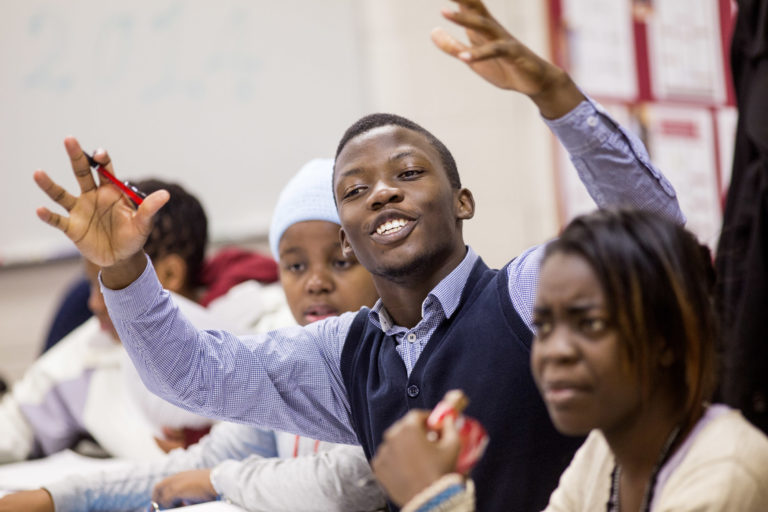
The influx of African students pursuing postgraduate studies in Russia has steadily increased over the years. Many arrive with hopes of combining their studies with employment opportunities. However, the demanding academic program workload at several Russian universities often makes it challenging to maintain focus and concentration amidst a new academic culture. In this piece, our analyst discusses strategies to help African students successfully navigate these challenges.
Understanding the Russian Educational System
To succeed in postgraduate studies in Russia, it’s vital to comprehend the unique characteristics of the Russian higher education system. Russian universities are known for their rigorous academic programs, and postgraduate studies are no exception. They are academically intense and require a high level of commitment. Recognizing this from the outset can help students set realistic expectations.
Register for Tekedia Mini-MBA edition 18 (Sep 15 – Dec 6, 2025) today for early bird discounts. Do annual for access to Blucera.com.
Tekedia AI in Business Masterclass opens registrations.
Join Tekedia Capital Syndicate and co-invest in great global startups.
Register for Tekedia AI Lab: From Technical Design to Deployment.
- Russian educational hierarchy: Understand the structure of Russian higher education, which includes undergraduate, postgraduate, and doctoral levels. Postgraduate programs often demand a more profound commitment to research and coursework.
- Coursework intensity: Be prepared for a demanding workload that includes both classroom instruction and independent research. Students should expect to spend a significant amount of time in the library and laboratory.
Time Management and Prioritization
Effective time management is key to success in any demanding academic environment. In Russia, it’s crucial to develop a study schedule that balances coursework and personal time.
- Study schedule: Create a detailed daily and weekly schedule that allocates specific blocks of time for classes, independent study, research, assignments, and personal activities. This structured approach helps ensure that academic obligations are met while allowing time for work and self-care.
- Prioritizing tasks: Identify the most critical tasks and assignments, and allocate more time and focus to these. This can help reduce the stress of juggling multiple responsibilities.
Seek Support and Build Networks
Networking is a vital aspect of postgraduate studies in any country. Russian universities offer diverse international student communities, and it’s essential to connect with peers, professors, and academic advisors.
- Peer support: Engage with fellow students from various backgrounds to build a support system. Sharing experiences and challenges can help create a sense of camaraderie.
- Faculty relationships: Develop relationships with professors and academic advisors who can provide guidance and mentorship. Professors often appreciate students who show dedication and interest in their field.
Language Proficiency
While many Russian universities offer programs in English, having some knowledge of the Russian language can be immensely helpful.
- Language courses: Consider enrolling in language courses offered by the university or external language schools. This not only improves communication but also fosters a deeper understanding of the culture.
- Language exchange: Seek out language exchange partners, either among fellow students or residents. This can provide an opportunity to practice conversational skills and gain insight into the culture.
Cultural Adaptation
Adapting to a new culture can be challenging, but it is essential for a successful academic experience.
- Cultural awareness: Learn about Russian customs, traditions, and etiquette. Understanding local culture can facilitate smoother interactions with peers and professors.
- Participate in local events: Engage with local activities and events to experience Russian culture firsthand. This can help you feel more integrated and reduce feelings of isolation.
Utilize Academic Resources
Russian universities offer a range of academic resources to support students. These may include libraries, research facilities, and academic counselling services.
- Library and research facilities: Familiarize yourself with the university’s library and research resources. Utilize these facilities for in-depth study and research to excel academically.
- Academic counselling: If you face academic stress or challenges, don’t hesitate to seek support from the university’s academic counselling services. They can provide guidance and strategies for success.
Manage Stress and Maintain a Healthy Lifestyle
Balancing work and studies can be demanding, so it’s essential to prioritize self-care and stress management.
- Regular exercise: Incorporate physical activity into your routine to relieve stress and boost concentration. Many universities offer sports facilities and activities.
- Balanced diet: Maintain a healthy diet to support your physical and mental well-being. Proper nutrition can improve your overall cognitive performance.
- Adequate sleep: Ensure you get enough rest to stay alert and focused. Sleep is essential for memory consolidation and learning.
- Emotional support: Seek help from university counselling services if you experience academic stress, homesickness, or emotional challenges. Sharing your concerns can lighten the emotional load.
Navigating the complexities of concentration during postgraduate studies in Russia can be challenging, but with proper planning, support, and a strong commitment to your goals, it is possible to thrive academically while balancing work and life. Embrace the opportunity for personal and academic growth, and remember that your experiences in Russia can be a transformative chapter in your educational and professional life.



